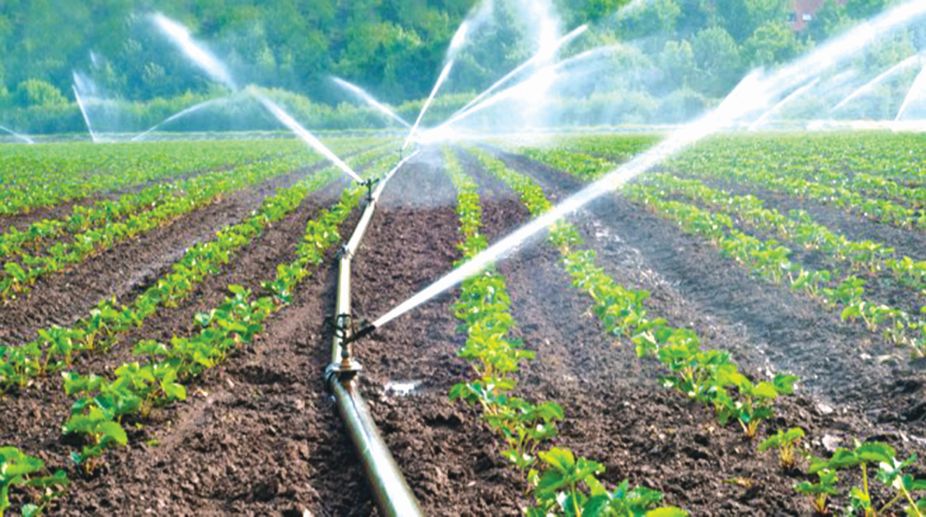The development of micro irrigation systems has fundamentally changed how we care for our crops in the complex world of modern agriculture, where sustainability and efficiency are key considerations. We explore the many advantages of micro irrigation systems in this thorough guide, illuminating their inner workings and the dramatic changes they bring to the agricultural environment. Let’s see what are benefits of micro irrigation, importance of micro irrigation and how it work.
Understanding Micro Irrigation Systems: The Power of Precision
How does micro irrigation work?
A sophisticated technique for providing water directly to the root zones of plants in controlled and precise amounts is micro irrigation, often known as drip irrigation. In contrast to conventional irrigation techniques, which distribute water widely and frequently wastefully, micro irrigation is based on the idea of efficiency. In order to distribute water precisely where it is required, it uses a network of pipes, tubing, and emitters. This reduces water loss from evaporation, runoff, and overspray.
The Micro Irrigation Process in Detail:
A few essential parts make up micro irrigation systems, and each one helps to distribute water carefully:
- Pipelines and Tubing: A system of pipelines and tubing that transports water from the water source to the plants serves as the foundation of micro irrigation systems. These pipes are made to withstand pressure changes and blockage, maintaining a constant flow of water.
- Emitters: The system's small emitters, which regulate the release of water, are at its core. These can be micro-sprinklers, bubblers, or drippers, each designed to meet the individual water requirements of the plants.
- Regulators and Filters: To keep the system functioning properly, filters are placed in carefully chosen locations to collect waste and keep emitters from becoming clogged. Regulators guarantee equal water distribution by maintaining a constant water pressure throughout the system.
- Sensors and controllers: Micro irrigation systems may include irrigation automation controllers. Sensors monitor variables such soil moisture content, weather, and plant requirements, enabling precise watering regimens.
The Wealthy Advantages of Micro Irrigation
- Water Efficiency: Micro irrigation uses up to 50% less water than traditional irrigation techniques, making it a water-saving champion. It is an environmentally responsible solution because it minimizes water loss due to evaporation and runoff by directly focusing on the root zones.
- Increased Crop Yields: When water is provided precisely to plant roots, crops grow more quickly, increasing yields and producing food of greater quality.
- Optimized Nutrient Delivery: By integrating micro-irrigation systems with fertilization techniques, nutrients can be delivered right to the root zones. This makes sure that plants get the nutrition they need for healthy growth.
Weed control: Micro irrgation helps with weed management by preventing unneeded water from being applied to the soil's surface. This practice also conserves precious resources.
- Reduced Erosion: By carefully applying water, soil erosion is kept to a minimum, keeping the land's structure and guarding against the loss of nutrients.
- Water pumping and distribution use less energy when using micro irrigation, which uses less water pressure than conventional techniques.
- Terrain Flexibility: These systems are adaptive and versatile, making them appropriate for a variety of terrains, including steep or uneven landscapes where conventional irrigation may be difficult.
- Salinity Control: Targeted water application reduces the buildup of salts on the soil surface, a problem that is frequently present in arid areas.
- Improved Plant Health: Micro irrigation reduces leaf wetness, lowering the risk of illnesses brought on by bacterial and fungal growth.
- Automation and Precision: By integrating controls and sensors, irrigation scheduling may be automated and exact, maximising water use and health.
Conclusion:
Micro irrigation systems are the threads that weave accuracy and efficiency into the tapestry of cultivation in modern agriculture. After exploring the numerous advantages of these systems, it is clear that they provide more than simply a way to supply water; they represent a paradigm shift in how we care for our crops and manage our resources.
Micro irrigation is a prime example of how technology and sustainability can coexist, with its complex web of pipes, emitters, and controllers. It reduces water wastage, which is important in times of water scarcity, by supplying water directly to the root zones. This focused strategy improves crop health and yield while also conserving water.
Micro irrigation develops into a precisely tuned symphony of irrigation schedules using sensors and controllers, adjusting to plant requirements and environmental factors.
The advantages go far beyond only saving water. The micro irrigation story includes improved crop yields, effective fertiliser delivery, weed control, lessened erosion, and energy savings. Precision-driven irrigation techniques make guarantee that agricultural practises adhere to the fundamentals of sustainable farming.
Contact Agriroute to get in touch with our team for professional guidance, consultations, and assistance. We are your partners in achieving excellence in agriculture, not merely a supplier of micro irrigation systems. Visit our website http://agri-route.com for more details or contact us on 7620144503 .






